- Home
- Rose Tremain
Rosie Page 3
Rosie Read online
Page 3
The one macabre gift we had from her, early in our visits, was a plait of red hair that had been hers when she was young. Jo seized on this, attached it to her disgraceful curls, covered them with a scarf and pretended to be Deborah Kerr in the hit movie King Solomon’s Mines, which we’d already seen two or three times. I was thus press-ganged into spending a portion of my childhood attempting to impersonate Kerr’s co-star, Stewart Grainger. Later in my life, I got to know Frankie Shrapnel, a horticulturalist, wife of the actor John Shrapnel and Deborah Kerr’s daughter. Frankie, too, had beautiful red hair. She was very amused that I’d spent so much time facilitating the imaginary world of a person who sometimes believed herself to be her mother – or ‘DK’, as Jo liked to call her.
Looking back at Granny’s dying, I understand that Jane was crucified by the approaching loss of her mother. If you haven’t been loved by a parent, you never quite give up on it – even though part of you knows that you should. You obstinately keep hoping that he or she will somehow discover this affection before they die. And then, when they’re nearing their end, you realise that it’s never going to come, that their afterlife you carry in your heart will be as arid and as lonely as the lived years. I think the overwhelming feeling in Jane was fear. She dreaded being left alone to cope with her father.
Granny didn’t die at Linkenholt. She died in a London hospital, where I know we were taken to see her not long before she vanished out of our existence, though I have no recollection of the visit, only the memory that we’d missed out on tea and that I was terribly hungry. We rode home from the hospital on the Tube, whereas our habitual mode of transport in London was the buses – the 19, the 22 and the 137. I remember seeing how all the cigarette stubs, thrown down by the Tube travellers, had collected between the wooden slats of the floor, and how everybody stared at everybody else as we flew through the darkness.
Cast Away
We didn’t know it then, but on that Tube journey we were beginning to speed towards an altered future.
Granny’s death was the first alteration. It changed the character of our visits to Linkenholt. Jane and Grandpop argued at mealtimes. Sometimes she ran out of the dining room, slamming the door. Grandpop just carried on eating, as though nothing had happened, giving morsels of his food to the new spaniel puppy, also named Jill. I think all Jo and I could do was sit very still, frozen to our chairs. This was the world we’d entered now, a world where nothing was happening, nothing visible, but under the surface, massive tectonic plates of feeling were shifting. We were headed for the storm which swept us away.
Until I was ten, our lives followed an unvarying pattern. We lived in a small house at 22 Sloane Avenue, in Chelsea (a pleasant but ordinary little London borough then, not the outlandishly expensive place it’s become since the 1960s), and attended the Francis Holland School in Bourne Street.
Every morning we walked to school with our nanny, Vera Sturt – past the bomb site at the end of the road, past Pritchard’s the bakers, where you could buy a loaf of bread for fourpence-halfpenny, past Boots, with its lending library at the back of the shop, past the barrow boys selling fruit and flowers, past the newsstand where we were allowed to buy our comics, Girl and School Friend, to read when we got home.
Vera Sturt, or ‘Nan’ as we called her, was the anchor in this London life. I shared a bedroom with her. She wore slippery floral nighties, bought from D. H. Evans in Oxford Street. She said her prayers kneeling silently by her bed. She smelled of coal-tar shampoo and talcum powder. She brushed my hair with great gentleness. She and I threw bread to the birds that wandered on a flat roof beyond our tiny window. She was the kindest person I’ve ever known.
Nan got us up in the morning, made us porridge or toast for breakfast and took us to school. In the afternoons, she collected us and either brought us home to play and read in the nursery before tea, or took us to Chelsea baths for a swimming lesson, or else brought a picnic tea to eat in Cadogan Gardens, where we played on the swings and Jo, mesmerised by a pretty child from Paris who also played in the gardens, pretended to be French. Her adopted name was Antoinette.
We then walked home with Nan: Antoinette and Rosie, who was sometimes dragooned into being Antoinette’s English friends Daphne or Di, or both at once, whose main task was to praise Antoinette’s clothes and the fine ribbons she wore in her sumptuous hair.
Before bath time, we were taken down by Nan to see the parents, Jane and our father, Keith Thomson, in the drawing room. Waiting to enter this hallowed grown-up space, Jo stopped being Antoinette and usually stood behind me at the door, pushing me forwards into the room as though suddenly afraid to be herself again and present that face for scrutiny.
Keith Thomson was a playwright. He worked in a study on a half-landing, the walls hung with posters from his productions. We grew up with reverence for his work, hearing his typewriter clacking, always remembering to be quiet on the stairs, because ‘Daddy’s writing’.
But his career had been marked by disappointment. The plays had never made it from provincial theatres into London. The one that had at last been commissioned by a West End theatre, Out of Sight, was cancelled when its star, the then famous Margaret Leighton, bowed out of the production to take the lead role in a film titled I Want to Live. And the whole body of his work would soon become unfashionable and meaningless to the British public as his type of ‘drawing room comedy’ was superseded by the realist, angry plays of the new wave – by John Osborne, Arnold Wesker and David Storey. Realising, perhaps, that his future as a playwright was now uncertain, he took up an offer to direct the York cycle of mystery plays at the York Festival and disappeared up north. He cast as his Virgin Mary a then unknown young actress called Mary Ure.fn1
As many writers do, Keith used his work as an excuse not to join in many family things. There is one photograph of a family picnic in Richmond Park, and I can remember him being at Linkenholt for one or two Christmases. He played the Blüthner piano in the Linkenholt library, smiling as he played, as though his own talent amused him. He was a quiet showman and encouraged us all – even Granny – to attempt complicated costumed charades. But he was a man who was easily bored, who found that the people around him at this time in his life didn’t entertain him enough. He was fond of his sister, June, who dabbled in painting, and he had some slightly bohemian friends in London, whom he liked. The Linkenholt Tory shire culture, however, was anathema to him. On Boxing Day, he would drive back to London to escape the pheasant slaughter. Even Sir Eastman Bell’s acres of daffodils wearied him.
How unhappy or discontented was he at this time? Jo and I saw him so little, we had no real idea who he was. He almost never took us anywhere or played with us on his own, as though he were afraid we would suddenly need something he didn’t know how to give.
He was a small, neat, dark-haired man with an amused, ironic smile and large, tired brown eyes, who had fought in the war in Germany and survived, but who had come home to children he barely knew. He’d met Jane while he was still at Oxford and she’d come over from Linkenholt with some friends to see one of the OUDS plays, in which he must have starred. Women always adored Keith, so he probably had other girlfriends before deciding to marry Jane in 1937, when they were both twenty-four, but these young women are lost in time.
There used to be a picture of the recently married couple in the drawing room at Linkenholt, one of those old soft-focus photographs that yields up its detail only slowly. The brightest bit of the picture is Jane’s bouquet of arum lilies – now more usually associated with death. She wears a slim, silky dress and white gloves. The faces betray almost nothing – neither happiness nor fear. Yet I know from things she told me long after Keith had abandoned her that Jane always saw him as the love of her life. What he felt about her I’ve never really known.
And what did we, his daughters, feel? Perhaps we loved him primarily because our access to him was rationed. Spending time with him had to be regarded as a treat. If he wasn’t actually absent
from us, in his study, or away somewhere, he would often seem absent, his head engaged too deeply with his writing or with the other feelings that were stirring in his life. The thing he liked doing best on his rare visits to our nursery was to read our comics aloud. The names of the characters made him laugh: Belle of the Ballet, Lettice Leefe, the Greenest Girl in the School. But he would never stay long. Nan called him ‘Daddy’ (just as she called Jane ‘Mummy’), as though her voice, addressing the parents, was ours and ours alone. ‘Stay a bit longer, Daddy,’ she would say. ‘Read one more story.’ But he never would. There was always something that called him away.
His work in York on the mystery plays earned him a surprising OBE. For this to have happened, his production must have been startlingly good. But we were never taken to see it. We just waited for him to come back. But in one sense, he never came back. Nothing was said or known until later, but in York he’d fallen in love with a much younger woman, Virginia Wood, who’d worked with him on the production.fn2 He and Jane were both aged forty in 1953. Virginia – it later emerged – was twenty-five. We didn’t know it yet, but he was lost to us.
The last time I see him clearly in my childhood is at Buckingham Palace, wearing a tail coat, smiling at the young Queen, crowned that very year, as he was given his honour. He was the smallest man in the line. Above him reared the red-and-gold caverns of the Throne Room. (Jane worked out that the enormous height of the ceiling would mean that the drop on the chandelier above us would take it from the chimney of our house to the pavement below.) Keith trod the deep-pile carpet lightly, in narrow black shoes. The smile on his face was, of course, a secret one, only half there for the new Queen. It was the smile of his new-found happiness.
People in love are ruthless, and Keith handled his leaving of us badly. It seems he made one attempt to come home and save his marriage, but he wasn’t able to do it. In the end, he and Virginia just ran away together.
Jo and I were told nothing for a long time. When many weeks had passed, we begged Nan to tell us where he was, and she, who was always uncomfortable with lies, said she thought he might be ‘in the north again’, working on a new play. People came and went from the house in the evenings. As we sat by the nursery fire, listening to The Mill on the Floss on Nan’s wireless, we sometimes heard Jane crying.
More time passed. Poor Nan was forced back on untruths more than once: ‘Daddy will be home soon … He’s got a lot of work to do … He’s in Germany …’
Then the day came when the grown-ups decided that everything had to be revealed. I was ten years old. Nan made tea at elevenses time on a Saturday morning. It was raining outside. The little gas fire in the nursery popped and flickered. Jane came up, wearing dark glasses. Jo and I were given milk and chocolate biscuits.
Nan had to tell us because Jane couldn’t get the words out: our father had gone away for ever. He wasn’t in Germany. He didn’t love us any more; he loved someone else. Life was like that sometimes. We just had to bear it.
The nursery furniture was painted pale pink. We sat at our pink table and tried to work out what exactly there was to be borne. I remember thinking that it was a shame the typewriter would be so silent. And then there was Lettice Leefe. What would become of her without the gift of my father’s amusement?
We didn’t cry. Jane wept and clung to Nan. We just sat there, saying nothing. Perhaps we were thinking that life wouldn’t change much without Keith, because he had hardly ever spent any time with us. Perhaps we imagined that everything would just go on as it had always gone on: the walks to school, the picnic teas with Nan, the buying of comics, the listening to the wireless by the fire, the swimming lessons, the visits to Linkenholt …
But we were wrong. All of this was about to be snatched away.
It’s the endeavour of most abandoned wives to keep their children close to them when their world collapses, but Jane – even with Nan’s affectionate help – couldn’t cope with us.
We were taken away from the Francis Holland School – away from our friends, from the games of rounders in the playground, from the warmth and guidance of good teachers, and worst of all, away from Nan – and sent to a little-known girls’ boarding school, Crofton Grange, in Hertfordshire.
What was Jane thinking? I was not yet eleven years old, and Jo was fourteen. We were both hard-working kids who had thrived at our London school and made many friends. But our mother’s life was in ruins. She needed to be left alone to try to put it together again. With us gone, Nan was no longer needed. She, too, was sent away – to live with her sisters in their small house in the village of Dogmersfield in Hampshire. The pink furniture of the nursery stood abandoned. Aside from Jo, who was caring and affectionate towards me at Crofton Grange, I knew only one girl, Jane McKenzie, whose parents followed our mother’s example in dispatching their girls to a distant academy.
Jane McKenzie and I had met at Miss Vista’s dancing class at the age of three. At a Christmas show entitled Meadow Flowers, the two of us had been cast as ‘thistledowns’. We wore little cotton slips, with skirts of billowing white net into which pieces of cotton wool had been sewn.fn3 Did we feel stupid, or proud of how we looked? I can’t remember. I think we may have been too young to care. Jane was blonde and blue-eyed and sweetly pretty, so she probably felt better about herself than I did. Who knows? All I know is that Jane McKenzie and I became very close friends at this early, slightly embarrassing moment in our lives, and that this friendship lasted until we were grown-up and our lives diverged.
Meanwhile, the grown-ups in London were playing musical beds. With Keith gone, and Jo and me safely dispatched to Hertfordshire, Jane embarked on a love affair with our father’s cousin, Sir Ivo Thomson.
Ivo and his wife (always known as ‘Tweets’), Jane and Keith and another couple, Brian and Vera Whitmee, had been close friends in Chelsea. Now, Jane began sleeping with Ivo and Tweets began sleeping with Brian Whitmee. How they contrived these affairs, in plain sight of each other, I’ve never completely worked out. But it was as if abandonment had become contagious. Once Keith had led the way, the others seemed to wake up to the idea that, although the war was quite far in the past, the 1950s was yielding a drab and constrained life from which only something as electrifying as brand-new love would deliver them.
Mawkie later told me that he suffered real and lasting agonies over his parents’ divorce. He’d been informed of it in a letter, sent to his prep school, Sunningdale, by his mother. Aged twelve at the time, Mawkie kept this letter for years and years, as though he feared these were the last words his mother would ever say to him.
And in a sense, he was right: they were the last words she would ever say to him while she and Ivo and their two children were still a family. Mawkie and his sister Carol, as well as Jo and I, were kept right out of the grown-ups’ emotional arithmetic, almost as though we didn’t exist.
They kept us out, perhaps, because they knew they were behaving in a wild kind of way. They took their new love brazenly, where it was the least trouble to find, among their closest circle of friends. Only poor Vera Whitmee, who came from Poland and dyed her hair a strange reddish-purple colour, appeared to be left out. Keith had Virginia, Jane had Ivo, Tweets had Brian, but Vera had no one. I believe she must have clung to her only child, Sophie, who had sometimes been invited to tea with us. She had been a child who tested Nan’s eternal patience, a girl with an angry face who sometimes stamped her feet and sent our toys skittering over the nursery linoleum. But I think she may have been her mother’s only consolation. Later, when we worked out how things had happened during this time, I began identifying with Vera Whitmee, imagining her in some distant freezing landscape, cast out, as we were cast out into boarding school, never completely understanding where her previous life had gone.
Tweets, on the other hand, was serene. She was a very beautiful woman, of whom Jo and I (and Nan) had always been slightly afraid. She had once come up to our nursery to use it as a space in which to change for dinner, an
d we had marvelled that the dress she climbed into, wearing oyster-coloured silk underwear, stood up on the floor of its own accord, like some throwback crinoline. We never forgot this: Tweets being helped to mountaineer into her frock. She seemed to disappear inside for a moment, then rise out of it, like a witch emerging from a shimmering circle of flame, with her wide mouth smiling and smiling – smiling and smiling. I remember that, unkindly, I didn’t want her to smile. I wanted her to go away down the stairs and leave us alone.
That Tweets left Ivo for Brian seemed strange to me. Tweets and Ivo had always been a mesmerisingly handsome couple, perfectly designed for each other. But something had gone wrong. ‘After the war,’ Jane once said, ‘nothing was ever the same again. You children simply didn’t understand.’
So Tweets turned to Brian and Ivo turned to Jane. Brian was a man I remember as being strangely inert; he had one eyelid that drooped, as though in perpetual apology for the goings-on of the time. But it turned out he was phenomenally rich. He married Tweets and they lived in grand London houses for the rest of their lives. The space I saw in my mind in these places was always Tweets’s dressing closet, with her sumptuous dresses waiting on padded coat hangers, great ranks of them, made of silk taffeta and brocade. I imagined Tweets caressing not Brian’s droopy eyelid, but the exquisite texture of the dress fabric.
Ivo was a fun-loving man, fond of verbal jokes and puns, who’d had a comparatively easy war on the ground in the RAF, so had retained an obstinate boisterousness and careless optimism. At the time he began his affair with Jane, he’d recently retired from a director’s job with the York Herald Newspaper Company, which owned the Yorkshire Evening Press, selling his shares in the Evening Press, for enough money to start his life afresh.
Keith had driven a Hillman Minx. Ivo drove a Bentley. If Jane’s heart had been broken by Keith (as she said, all her life, that it had been), Ivo successfully wooed her with jewellery and nylons and dinners at the Berkeley – and no doubt with the confident passion of a good-looking man, and the irresistible tickle of a tiny little moustache he kept fastidiously trimmed. ‘I was helpless,’ she later said to me. ‘I tried to get away from Ivo, but I couldn’t.’

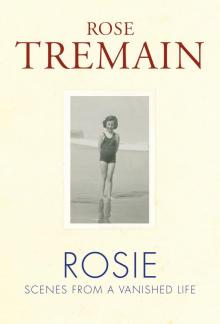 Rosie
Rosie The Garden of the Villa Mollini
The Garden of the Villa Mollini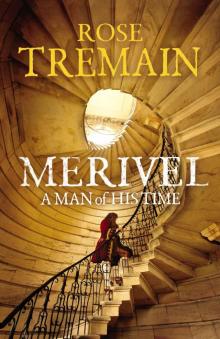 Merivel: A Man of His Time
Merivel: A Man of His Time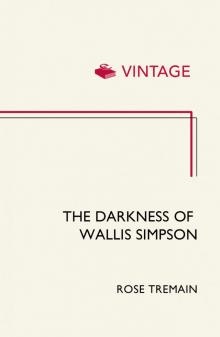 The Darkness of Wallis Simpson
The Darkness of Wallis Simpson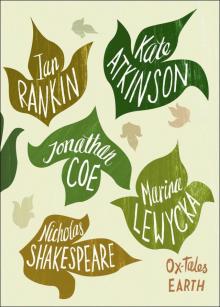 Earth
Earth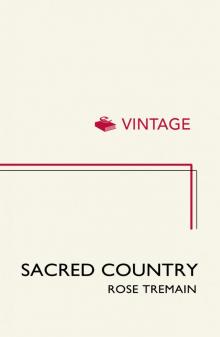 Sacred Country
Sacred Country The Swimming Pool Season
The Swimming Pool Season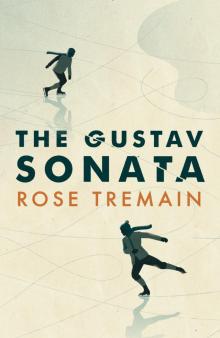 The Gustav Sonata
The Gustav Sonata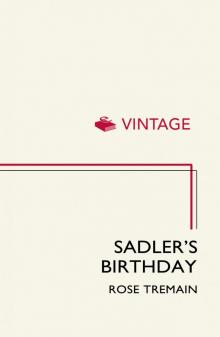 Sadler's Birthday
Sadler's Birthday The Cupboard
The Cupboard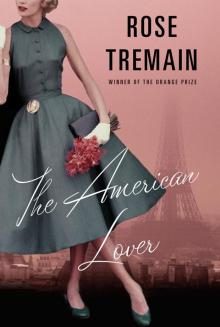 The American Lover
The American Lover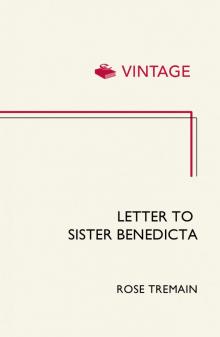 Letter to Sister Benedicta
Letter to Sister Benedicta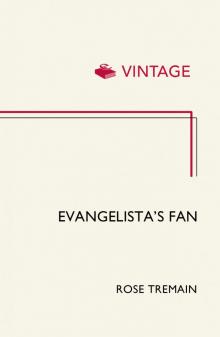 Evangelista's Fan
Evangelista's Fan Restoration
Restoration The Road Home
The Road Home The Colonel's Daughter
The Colonel's Daughter The Way I Found Her
The Way I Found Her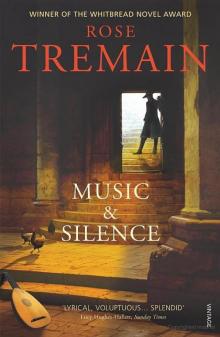 Music & Silence
Music & Silence